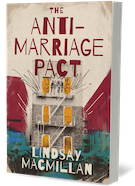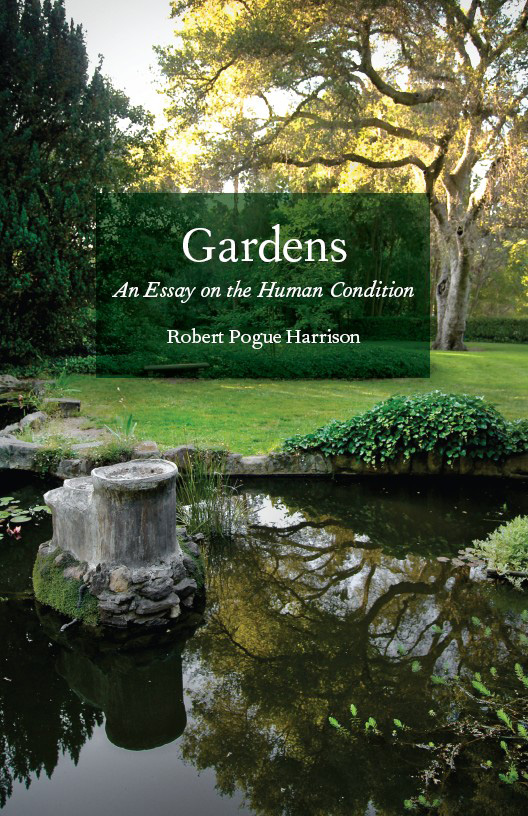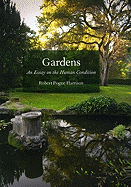Notes: 'Magical Little Mazes'; Changing Reading Habits
"As those who haunt them know, bookstores can be magical little mazes of aisles and alcoves where half-hidden gems abound," noted the Springfield, Mass., Republican in its interview with David Ham, owner of the soon-to-close used bookshop, Half Moon Books, Northampton.
"People from out of town are not coming here," he said. "It used to be that a lot of people from New York would stop here to spend the night and go to Vermont." Ham isn't selling his bookshop because he "wouldn't feel right," he said. "I don't think you can make enough money to live on."
---
Shelfari has relaunched. The new design of the book-oriented social networking site offers, among other things, more information about which books are hot at the moment on Shelfari as well as information about people who are reading the same book a member is and who has the same books. Check it out at Shelfari.com.
---
An election year offers the perfect opportunity to teach kids about politics, and the Associated Press (via the Salt Lake Tribune) featured suggestions for "new children's books that cover the voting process, life in the White House and the nation's star-spangled failure to give women the vote until 1920."
---
The 10 stores that Hudson Group opened at Cleveland Hopkins International Airport on June 1--awarded in early May--include a Hudson Booksellers and seven Hudson News newsstands. Hudson gained access to the spaces on Saturday night, May 31, and opened them at 5 a.m. Sunday morning.
---
A recent survey unveiled at the Bookseller's "Reading the Future" conference last week found that "56% of 18-24s think people will still be using bookshops in 20 years' time."
The research, which studied "reading and buying habits of 1,000 adults" in England, was conducted by Next Big Thing. The agency's spokesperson, William Higham, also noted that 28% of the 18-24 year olds approved of e-readers, compared to 9% of 65+ year olds; while 40% of the younger respondents liked the idea of downloadable chapters of books, versus 7% of those 65 and older.
Seni Glaister, CEO of the Book People, suggested that "content is king--always. As an industry I hope we don't spend too much time worrying about technology and let's protect our copyright, make sure downloads are available--but as content providers we shouldn't worry too much about technology."
---
For intrepid bookstore explorers, Iceland Review recommended Útúrdúr bookshop, Reykjavík: "This shop is a labour of love, the six friends who got together to make Útúrdúr happen, did so out of a love of their subject and belief in the need for a destination for those intrepid explorers curious to learn more about a scene that is rapidly becoming of major international interest."
---
Should governments be more involved in encouraging reading for pleasure? The Guardian explored the issue from a British perspective: "The government, through its education department, has declared itself on many occasions to be utterly serious about helping every child to do well at school and that this is predicated on knowing how to read. With this in mind they have invested huge amounts of money in the National Literacy Strategy and, more recently, a systematic method of teaching literacy known as 'synthetic phonics.' Alongside this they have voiced an interest in encouraging the reading of books for pleasure, but have singularly failed to back it up with the same kind of stick they have brought to bear on the Literacy Strategy and the implementation of synthetic phonics."
---
In a column in the Miami Herald, Leonard Pitts Jr. ruminates on the Atlantic's current cover story, "Is Google Making Us Stupid?" about the Internet's effect on reading. "I am finding it increasingly difficult to read deeply, to muster the focus and concentration necessary to wrestle any text longer than a paragraph or more intellectually demanding than a TV listing. . . . More and more, I have to do my reading in short bursts; anything longer and I start drowsing over the page even though I'm not sleepy, or fidgeting about checking e-mail, visiting that favorite website, even though I checked the one and visited the other just minutes ago."
There's more. But we can't seem to bring ourselves to read it again.
Wait, we're back. No new e-mail. Darn.
The ending of Pitts's column is about how good it felt to get lost in Scott McClellan's What Happened, which Pitts had to finish in a rush. "The hours I spent reading McClellan's book felt like an escape, like I had stepped off a treadmill for the first time in years. The pages fell away and the hours got lost. I don't know about you, but I could use more days like that."
---
"I really wanted to give you cars . . . just couldn't pull that off," Oprah Winfrey told Stanford University's 2,600 graduates, each of whom received, as a consolation prize, copies of A Whole New Mind: Why Right-Brainers Will Rule the Future by Daniel Pink and A New Earth: Awakening to Your Life’s Purpose by Eckhart Tolle. Reuters reported that "as far as gifts go, they are less likely to get you in trouble with the tax man."






SHELFAWARENESS.0213.S4.DIFFICULTTOPICSWEBINAR.gif)





SHELFAWARENESS.0213.T3.DIFFICULTTOPICSWEBINAR.gif)


 Gardens is a dazzling and inventive book. Every page has a thought-provoking idea; every page has a passage that you'll want to share with someone. Robert Hogue Harrison, a Stanford professor of Italian literature, contemplates gardens through numerous lenses--literature, of course, from Dante's Paradiso to Malcom Lowry's Under the Volcano to Pablo Neruda; or anthropology, with the idea that the first gardens came before agriculture and were created for purposes that were ritualistic and magical, not economic or productive. With that thought, he ponders the gardens homeless people create, saying that gardens are a response to human needs that are not reducible to our animal needs.
Gardens is a dazzling and inventive book. Every page has a thought-provoking idea; every page has a passage that you'll want to share with someone. Robert Hogue Harrison, a Stanford professor of Italian literature, contemplates gardens through numerous lenses--literature, of course, from Dante's Paradiso to Malcom Lowry's Under the Volcano to Pablo Neruda; or anthropology, with the idea that the first gardens came before agriculture and were created for purposes that were ritualistic and magical, not economic or productive. With that thought, he ponders the gardens homeless people create, saying that gardens are a response to human needs that are not reducible to our animal needs.